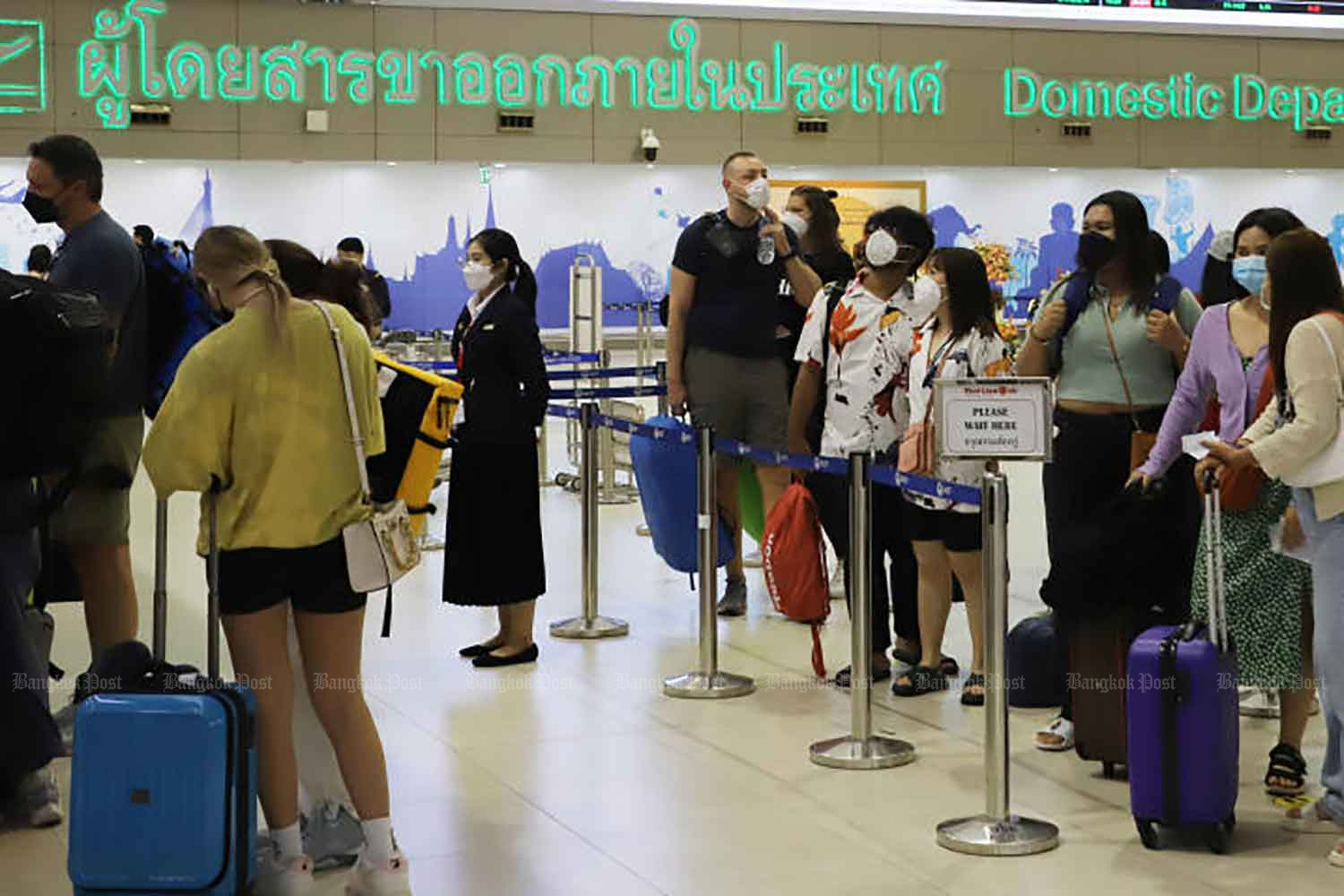
Domestic passenger traffic is expected to pick up this month as airlines begin to increase flight frequencies in response to the loosening of travel restrictions, according to the Aeronautical Radio of Thailand (Aerothai) and the International Air Transport Association (Iata).
Both organisations noted the pace of recovery is consistent with global trends.
According to Aerothai president Nopasit Chakpitak, an average of 1,437 domestic flights took off from the nation's airports every day after the lifting of most Covid-19 restrictions on July 1 -- up from 1,374 flights per day last month.
Domestic passenger numbers are expected to surge this month as there are two long weekends, the Asanha Bucha and Buddhist Lent holiday from July 13-17 and the long weekend for His Majesty the King's birthday from July 28-31.
As a result, he said, the average number of domestic flights taking off each day is expected to increase to 1,450-1,480.
With more and more airlines restoring destinations and increasing flight frequencies, up to 430,000 flights are expected to take off this year, up 41% from last year's figure.
Separately, the Iata said passenger data for May showed an accelerated recovery in global air travel, spurred on by the start of the Northern Hemisphere summer travel season.
Total traffic in May this year was up 83.1% compared to the same period last year, largely driven by the strong demand for international travel. Iata noted that global traffic is at 68.7% of pre-pandemic levels.
"The travel recovery continues to gather momentum. People need to travel .. and when governments remove Covid-19 restrictions, they do," noted Willie Walsh, Iata's director-general.
In May, Asia-Pacific airlines had a 453.3% rise in traffic compared to May last year, significantly higher than the 295.3% year-on-year gain registered in April 2022. Capacity rose 118.8% and load factor was up 43.6 percentage points to 72.1%, according to Iata.
Improvements in the region are being driven by reduced restrictions in most markets, except China.
In the longer term, governments must improve their understanding of how aviation operates and work more closely with airports and airlines, according to Mr Walsh.







